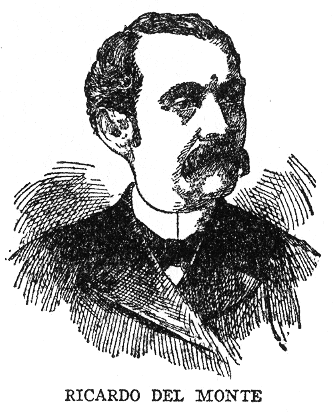3.7.1 The literary criticism work of Ricardo del Monte (1828 – 1909)

Ricardo del Monte, Domingo del Monte’s nephew, received a thorough education from him, which included direct contact with European languages and cultures. From this, he developed a refined aesthetic perception and determined to worship beauty above moral and ideological considerations. This served as a means of evaluating literary works, although he was more of a theorist than an accomplished critic, in the sense that his works of this nature were few in number.
In political matters, he always maintained a cautious approach, never going beyond reformism and autonomism, which became increasingly reactionary and distanced itself from certain works produced in the country. His text “Lyric Effect” was first published as a pamphlet in 1866 and later published in “Revista de Cuba” in 1877.
This text, among other tasks, analyzes the biases of mid-19th-century versification through the work of Cuban poet Saturnino Martínez; however, it does recognize the values of Cuban Romanticism and the leading figures of José María Heredia and Gertrudis Gómez de Avellaneda.
In his text “My Debt,” he takes modernism as his object of study, and within it, the particular lyrical expressions of Julián del Casal. As an author, he also belonged to this movement, but he did not embrace its inherent ideas regarding art as an end in itself. In fact, his political fundamentalism led him to reason erroneously regarding the distance between the models of Spanish lyrical poetry and the space occupied in this regard by French-inspired poetics.
He was recognized in his time for his erudition and for uniting the prevailing currents of thought in his vision of literature, primarily positivism and Hegelian idealism. His style, while not strictly literary, is firm and polished. He somewhat erred in attributing normative functions to criticism that would ultimately restrict creative freedom, instead considering its role as contributing to readers’ literary perception.
Critical texts related to his autonomist affiliation appeared in publications such as: “La Aurora de Matanzas”, “El Triunfo”, “New York Herald”, “El nuevo país” and “Cuba”, already after the Republic was established in 1907. He used the pseudonyms “De Profundis” and “Juan Vinagre” on several occasions.








